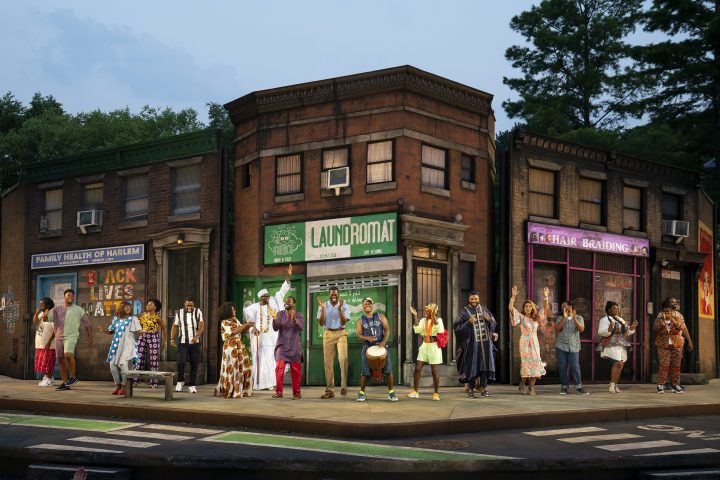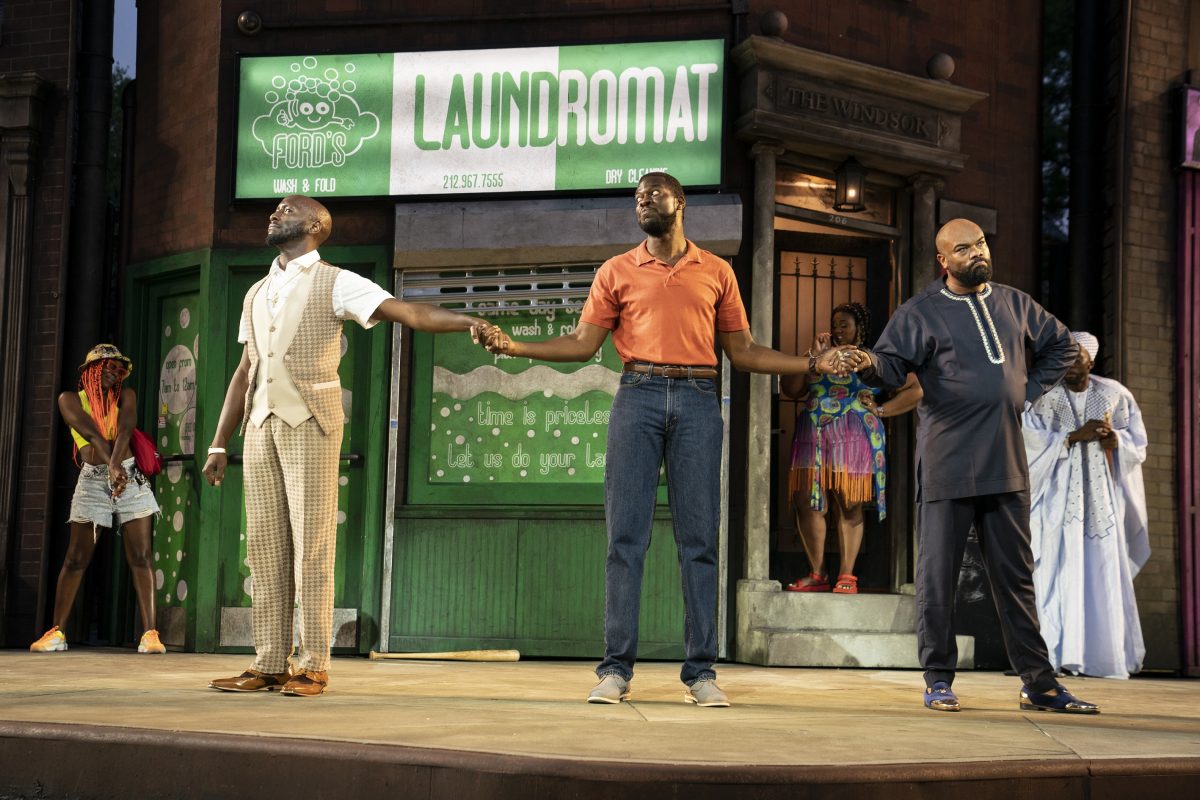
The Merry Wives of Windsor is widely regarded as one of Shakespeare’s worst works. Its underdeveloped characters play out the farce of an undesirable, overweight man attempting but failing to seduce married women. Nevertheless, it’s on stage this summer in Central Park with an all-black cast staged as living on a street corner in Harlem. But the real question is, does this production of Merry Wives truly honor Black lives and amplify Black voices?
Yes, it is undeniable progress to see an all Black cast. Nevertheless, there is a writing problem at the heart of this show.
No one can say that Jocelyn Bioh didn’t do a good job at adapting the script. The Ghanaian-American writer, playwright, and actor was asked to genetically engineer a chimera: Give the people a play that is Shakespearian enough for the Delacorte but “Black” enough for 2021. Her script cleverly interweaves Black cadences and Elizabethan prose, situating the original story in modern day Harlem. The director Saheem Ali, born in Kenya, marvelously breathed life into Bioh’s chimera. The cast is sumptuously surrounded by the spectacular scenic design of Beowulf Boritt, adorned in gorgeous African inspired costumes selected by Dede Ayite, and elegantly illuminated by Jiyounh Chang’s lighting design. The high production value hits all the right notes and doesn’t miss a beat.
Despite all this dazzle, this chimera is still a monster. Why not present the formidable work of Jocelyn Bioh in its own rite with these high production values? Wouldn’t her far more nuanced portrayals of Black people speak louder to 2021’s problems than giving shallow Elizabethan characters Black accents?

As the audience gave a standing ovation at the end of Merry Wives, I paused.
Shakespeare’s pivotal role in the history of English theatre is evident enough. But the unrelenting drive to keep staging his work every summer in Central Park, when it can’t possibly speak to the daunting racial challenges of our current moment, is becoming untenable. How perniciously does white supremacy glow like the aura of genius, eclipsing honest appraisals of the pertinence of an outdated writer’s work to address our times.
Is it possible to revere the long illustrious history of Shakespeare in the Park, which includes fine Black actors such as James Earl Jones, while also suggesting it may no longer serve a changing city? When Joseph Papp began staging Shakespeare in New York City parks in 1954, the city was 90% white, according to the official estimate. In a city that is now less than 50% white, it is no longer democratic, ethical, or representative to predominantly produce the work of a dead British man in this publicly owned outdoor theatre. How might this stage in Central Park — which purportedly belongs to everyone — more equally and authentically honor the heritage and culture of all its citizens.
What is coming next? Shall A Midsummer Night’s Dream be restaged in ancient China with orientalist costumes? Shall Macbeth occur in pre-conquest Mexico with feathery Aztec costumes to pretend that the conquistadors never raped and pillaged? We are quickly approaching a breaking point in how far adaptions can be stretched in the name of equity.
Instead of twisting Shakespeare’s antiquated plays into the multicultural pretzels they aren’t, let’s allow BIPOC actors to breathe life into stories entirely by BIPOC playwrights for a city that is now majority BIPOC. If you find it sacrilegious to suggest that producing the work of Black playwrights in their own rite might be more relevant than yet another Shakespeare adaptation then racism is holding you back from seeing the future.

A “brave new world” will not be found in yet another production of The Tempest, remarking on how Shakespeare coined that witticism therein. When Miranda says these famous words, it’s because she’s meeting a bunch of people for the first time after a long isolation with Prospero and Caliban. It’s time to stop isolating like Miranda. It’s time to meet Lorraine Hansberry, Ntozake Shange, Joceyln Bioh, and other BIPOC playwrights. Stop isolating with Shakespeare, however magical you might think he is. Is he truly all you ever want to know?
Merry Wives, by William Shakespeare, adapted by Jocelyn Bioh, directed by Saheem Ali , runs until September 18th in New York’s Central Park.
0 Commentaires